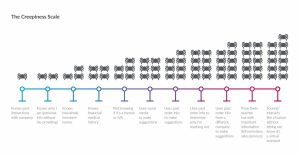
People often take less accountability for individual and team performance when doing work as part of a group. This tendency, called “social loafing”, is well documented. In these cases, some of us may take advantage of a situation in which it’s harder to pinpoint responsibility—a situation created by the fact that many people have a role in the team’s performance.
This low degree of “identifiability”—when our individual performance is not clearly observable—allows us to more easily “hide” and avoid taking accountability for our role in the team’s poor performance. However, when others can see our individual performance and our contribution is clearly linked to us, accountability and performance levels both increase.
One example of the impact of identifiability on accountability and performance comes from a study that looked at the times of the members of the Ohio State Swim Team in a competitive event. Four teams of four men were formed by matching for ability and speed of each swimmer’s time for 100-meter lap.
Two of the four teams were randomly assigned to the “high identifiable” group, whose lap times would be announced aloud to them and to anyone else within hearing. The other two teams were assigned to the “low identifiable” group, whose lap times would not be announced or revealed even if the swimmer asked for the information.
The study found that when swimmers’ scores were not made public, they exerted less effort and swam both the individual and relay events more slowly. When individual scores were made public the swimmers exerted more effort and swam faster in both events.
It appears that the stakes are higher when we know our action will be attributable to us and that we have to justify ourselves and our actions to others. Knowing this, we seek approval and respect and try to maintain our own self-image—we try harder.
Social loafing is a common problem in cross-functional teams consisting of numerous leaders across departments or regions. Among these groups, it isn’t always clear who is in charge or who reports to whom. Team members may view the work as someone else’s responsibility, so they avoid taking ownership.
In these situations, it’s the leader’s job to monitor performance and motivate the team to excel. Here are three things leaders can do to minimize “social loafing” and enhance individual accountability within cross-functional teams.
1. Use Meaningful Metrics That Connect Individual Contributions to Team Goals
If the team’s ultimate goal is to increase sales, it’s easy to evaluate the sales managers based on monthly revenue. It may not be as easy to evaluate the marketing manager’s performance, but it’s just as important. Consider what metrics you can use to evaluate each role. For a marketing manager, it may be the number of qualified sales leads rather than sales revenue.
2. Ensure Transparency of Individual Tasks and Goals
Within a cross functional team, a lack of clarity about who will work on a specific task is not uncommon. This can be avoided by taking the time to develop actions plans and making them visible through shared documents or project management software, such as Basecamp.
When the tasks are clearly defined and assigned to a specific person with a set deadline, that person will have no excuse for not completing his or her work on time. In addition, the realization that others are aware of the work they are responsible for will also increase their level of engagement and accountability.
3. Track Progress On Assignments
Don’t simply assign a task and walk away. Establish key milestones with estimated completion dates, and use those milestones as opportunities to check in with individuals.
Take the time to discuss their progress and identify any roadblocks. If someone is falling behind on a particular task, find out why and provide coaching when appropriate.
These practical actions not only reinforce an individual’s role in making the team a success but also make their role and contribution transparent to others. This results in a high degree of identifiability, which enhances overall team performance.
Business & Finance Articles on Business 2 Community(44)






